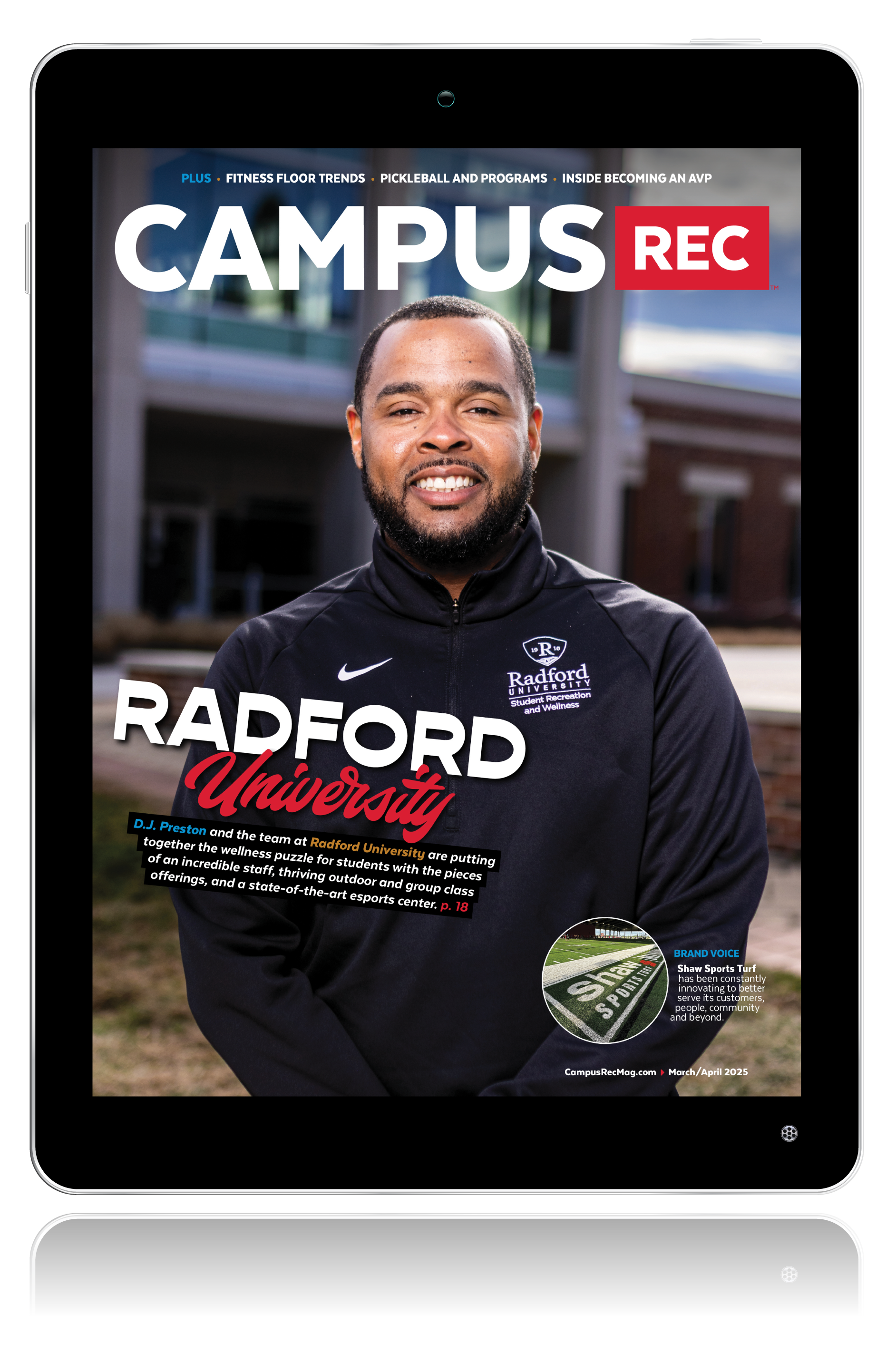Your No. 1 customers are your students. As such, you shouldn’t be afraid to talk money with them.
“Transparency is my most important budget management tip,” said Dax Kuykendall, the director of campus recreation at the University of Texas at Arlington. “Never miss a chance to explain to students where your funding comes from and how you plan to use it. Chances are, most students aren’t aware of the actual amount they are paying for access to your programs and services.”
Discussing and planning for finances is a necessity in the campus recreation world. Kuykendall said students need to know why decisions are made, should be encouraged to ask questions and voice concerns, and need to be participating in the budgeting process.
Eric Anderson, the director of the divisions of student development and campus recreation and wellness at St. Louis University, echoed Kuykendall’s sentiments. Transparency and frequent updates with stakeholders are key.
But so is a strategic plan that aligns resources with priorities.
From a capital project standpoint, St. Louis is looking out four to five years and prioritizing what’s to come. On a quarterly basis, Anderson and his team sit down with their shared services business unit to review funds and make sure they are on the right track. “We also use that time to discuss future financial trends, any areas of concern, and learn about updates to institutional policies and procedures around business and finance,” he said.
For Kuykendall, he said it’s key to be flexible with their annual earmark for large-scale facility maintenance and equipment replacement. “Purposefully setting aside resources for specifically improving facilities and programs has allowed us to follow trends and emerging best practices in our field,” he said. “We have also started focusing resources toward collaborative well-being focused initiatives on our campus.”
One way St. Louis University is planning for budgeting changes is in minimum wage. Anderson said they will see increases over the next five years. With their student employee tier pay based jobs, they are running cost scenarios and are looking at ways to best manage the increase in labor costs.
Kuykendall also looks to be competitive in terms of student wages. They try to be at or slightly above other university departments for entry level positions. Plus, they offer quite a few opportunities for advancement. “Luckily, we’re the first choice for students who want to work on campus,” he said. “We are able to recruit and hire great students without having to offer wages that significantly impact operations.”
When it comes to professional staff, that’s a challenge. Kuykendall explained they are trying to hire the best candidates for positions while working within university standards for salaries. And when crossing career fields, you need to make sure positions and compensation are communicated clearly. “Colleagues with similar titles in other fields aren’t always compensated at levels we prefer for collegiate recreation, so clearly articulating things like staff supervision, risk management, overall impact, etc. are critical when posting and hiring positions,” said Kuykendall. “If you have questions about the proper market value for a position, NIRSA does a salary census every few years that is available for members through their website.”
Budgeting doesn’t end with professional staff in terms of pay. It’s also key to have them understand managing their own program budgets. Anderson said different staff need different levels of support and direction. Kuykendall noted that involving all levels of staff as early and often as possible is key. “Accountants or other budget management staff should meet with each program area on a monthly basis to snapshot year-to-date actual expense, and also forecast any upcoming significant expenses,” he said.
However, the success of a program is not always directly related to the finances, noted Anderson. That doesn’t need to limit the effectiveness of a program, as he’s seen great success on shoestring budgets.
Nonetheless, that doesn’t mean skimp on what you ask for. “Finances are a lot like storage closets,” said Anderson. “If you don’t have enough, you’ll definitely wish you had more. If you have too much, it can lead to waste. Better to have exactly what you need so you are continually evaluating whether you’re using it in the best way and whether you need to get rid of something to make room for better things.”










